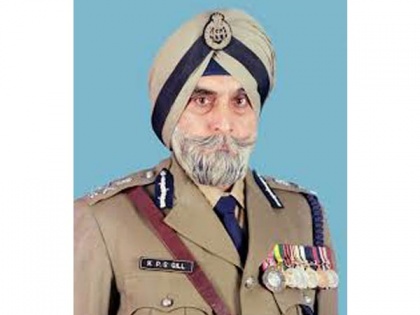Remembering KPS Gill, a man behind India's successful counter-insurgency strategies
By ANI | Published: May 27, 2020 05:07 PM2020-05-27T17:07:04+5:302020-05-27T17:20:02+5:30
In the late 1980s, India appeared to be at the cusp of disintegration, with a multiplicity of insurgencies raging - at a peak in Punjab, in multiple states of the Northeast, a raging Maoist movement across wide swathes of territory from Andhra Pradesh in the South to the Nepal border in Bihar, and an abrupt descent into chaos in Jammu & Kashmir.

Remembering KPS Gill, a man behind India's successful counter-insurgency strategies
In late 1980s, India appeared to be on the cusp of disintegration, with a multiplicity of insurgencies raging - at a peak in Punjab, in multiple states of the Northeast, a raging Maoist movement across wide swathes of territory from Andhra Pradesh in the South to the Nepal border in Bihar, and an abrupt descent into chaos in Jammu & Kashmir.
In Tamil Nadu, Sri Lankan terrorists of the Liberation Tigers of Tamil Eelam had entrenched themselves, running a flourishing network of orgsed crime and mobilising local sympathisers to raise an incipient demand for a unified Tamil state spanning the Palk Strait.
As we look at the defeated and degraded insurgencies across India today, the nation must recall its debt to the one man who made this possible - K.P.S. Gill, best known as the man who, as Director General of the Punjab Police, stamped out the Khalist insurgency from the state.
The generation that experienced the terror in Punjab is now aging, or has passed.
Later generations have little knowledge or understanding of that age, and intervening decades of motivated myth-making have brought many to believe that the insurgency in Punjab was not particularly severe, was defeated by the 'people's will', or withered away because it lost Pakist support.
Each of these is a mfest falsehood promoted by those who were defeated, on the one hand, and those who seek to diminish the astonishing victory that was engineered in the Punjab under Gill's command, on the other. As Chief Minister Amarinder Singh recalls, "When he took over Punjab Police reins, it was a force of shattered men, who would shut down police stations after sunset for fear of terrorists."
Gill took that 'shattered police force' and inspired the Police leadership and forced to construct a counter-insurgency victory unparalleled in history.
The defeat of Khalist terrorism not only restored peace in Punjab, it halted the separatist and anti-state momentum across the country.
For had Punjab succumbed, every fissiparous movement in existence - and others that would certainly then have emerged - would have grown infinitely in strength, even as a weakening Centre would progressively fall apart.
Gill not only saved Punjab for India, he saved India from disintegration.
Gill's monumental achievements in Punjab have eclipsed his extraordinary contributions as a Police officer in Assam. During the Indo-China war of 1962, as a large Chinese force advanced across the North East Frontier Agency (NEFA), and Prime Minister Jawaharlal Nehru virtually admitted defeat to announce over All India Radio, "My heart goes out to the People of Assam," pc set in across the State, Police leaders and administrators abandoned their posts and fled the Northeast with their families. But Gill, as Superintendent of Police at Tezpur, an area which was thought to be under imminent threat of being overrun by the Chinese, stood firm, refusing even to evacuate his wife and two young children.
He raised an irregular force, training and arming citizen volunteers to mount a resistance against what was then thought to be the looming Chinese occupation. That did not come to pass, but the people of the Northeast (at that time, NEFA and Assam) remember this lone act of courage at a time of enveloping cravenness.
In Assam, again, he is remembered for his unique and firm actions against near unchecked waves of illegal migration from then - East Pakistan (now Bangladesh).
And when the Assam agitation against these "outsiders" exploded, bringing with it the United Liberation Front of Asom (ULFA) insurgency, it was Gill who fought at the extensive frontlines of another war within India's borders that had pushed one of its states to the very edge of collapse.
And in 2002, after a full two months of murderous rioting and a collapse of Policing across the State, when Gill was sent to Gujarat to restore order to the situation, he brought mass violence to an end within a week and an end even to occasional incidents within a month.
Gill's 'Punjab model' of counter-insurgency influenced Police leaderships in other theatres of strife, contributing directly to the defeat of the ethnic militancy in Tripura and of the Maoists in Andhra Pradesh.
Little of this is remembered today. Even less is known of Gill's prolific intellectual contribution and his efforts to establish rigour in counter-terrorism and security studies in India. After his retirement he wrote eloquently on issues relating to terrorism, insurgency, policing and politics, often changing the most fundamental contours of the prevailing discourse.
"A nation that does not honour its heroes," it has been said, "will not long endure". On this, his third death anniversary, India salutes K.P.S. Gill.
K.P.S. Gill (December 29, 1934 - May 26, 2017)
( With inputs from ANI )
Open in app